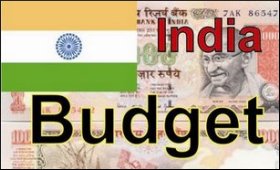|

|
Budget 2010 ensures a positive environment for growth: CII
|
|

|
|
| Top Stories |
 |
|
|
|
SME Times News Bureau | 27 Feb, 2010
In Budget 2010, the Finance Minister has sent out a positive message for reform that will ensure a stable macro-economic environment conducive for growth. In particular, CII appreciates the efforts made towards fiscal consolidation even as stimulus measures for industry have been largely maintained, said Venu Srinivasan, President, CII, commenting on the Union Budget presented in the Parliament on Friday.
The CII President said that the reform measures proposed in the Budget include major areas such as direct and indirect tax reform, accelerated disinvestment of PSUs, more transparent subsidy regime for fertilizers, financial sector consolidation and efforts to strengthen transparency and public accountability. Simplification of Income Tax returns and the automation of Central Excise and Service Tax are most welcome.
The initiative to target an explicit reduction in the government’s debt-GDP ratio, as recommended by the Thirteenth Finance Commission, is a welcome move that will provide confidence to investors, the CII statement issued here said. Indeed, the reduction in the fiscal deficit from the revised estimate of 6.9% of GDP in 2009-10 to 5.5% in 2010-11 has brought relief to the debt market, as it implies a reduction in net government borrowing. This will allow interest rates to remain stable even as there is a recovery in private sector borrowing. CII also welcomes the move away from the practice of issuing bonds to oil and fertilizer companies, and not accounting for these subsidies in the Budget.
With a few exceptions, CII welcomes most of the changes in the direct and indirect tax rates. CII welcomes the reduction in the corporate surcharge from 10% to 7.5% and the increase in deduction against R&D from 150% to 200%. However, the increase in MAT is a retrograde move, as it dilutes the incentives given to companies for various reasons. The change in the slabs for personal taxes is welcome, as it will provide greater disposable income in the hands of taxpayers.
CII is particularly happy that the Finance Minister has sent a clear message that any unwinding of the stimulus would be calibrated, based on the pace of recovery of industry. Extension of interest subvention of 2 per cent to exports for one year for the SME sector is also welcome. The SME sector will also benefit from the increase in the limits for presumptive taxation and the clarification that no capital gains tax would be levied in case of conversion of small companies into LLPs.
Important measures have been taken to consolidate regulation in the financial sector. The establishment of the Financial Stability and Development Council will help inter-regulatory co-ordination while the Financial Sector Legislative Reforms Council will provide an outline for the expected reforms in this sector. The provision of additional banking licenses to private sector entities will enable greater competition in banking even as public sector banks are strengthened through re-capitalisation.
CII also welcomes the steps taken to encourage agricultural growth. The dual strategy of increasing agricultural productivity on the one hand and initiating reforms in the food supply chain on the other is one that has long been recommended by CII. If implemented well, this can go a long way in overcoming the supply bottlenecks that have been responsible for the current increase in inflation. Incentives provided to the food processing sector will also enable greater investment in this critical area, the press statement said.
CII has always highlighted the need for greater investment in infrastructure which will be a catalyst for growth. Budget 2010 has provided for significant increases in the Plan outlay for the critical infrastructure sectors such as roads, power, housing and rural infrastructure. The National Clean Energy Fund has also been established with an allocation of Rs 1000 crores to promote research and innovation in clean energy. CII is confident that with these measures, there will be a step-up in the amount invested in infrastructure.
|
|
|
| |
|
|
|
|
|
|
|
|
|
|
|
|
|
|
| |
| Customs Exchange Rates |
| Currency |
Import |
Export |
US Dollar
|
84.35
|
82.60 |
UK Pound
|
106.35
|
102.90 |
Euro
|
92.50
|
89.35 |
| Japanese
Yen |
55.05 |
53.40 |
| As on 12 Oct, 2024 |
|
|
| Daily Poll |
 |
 |
| Do you think Indian businesses will be negatively affected by Trump's America First Policy? |
|
|
|
|
|
| Commented Stories |
 |
|
|
|
|
|
| |
|